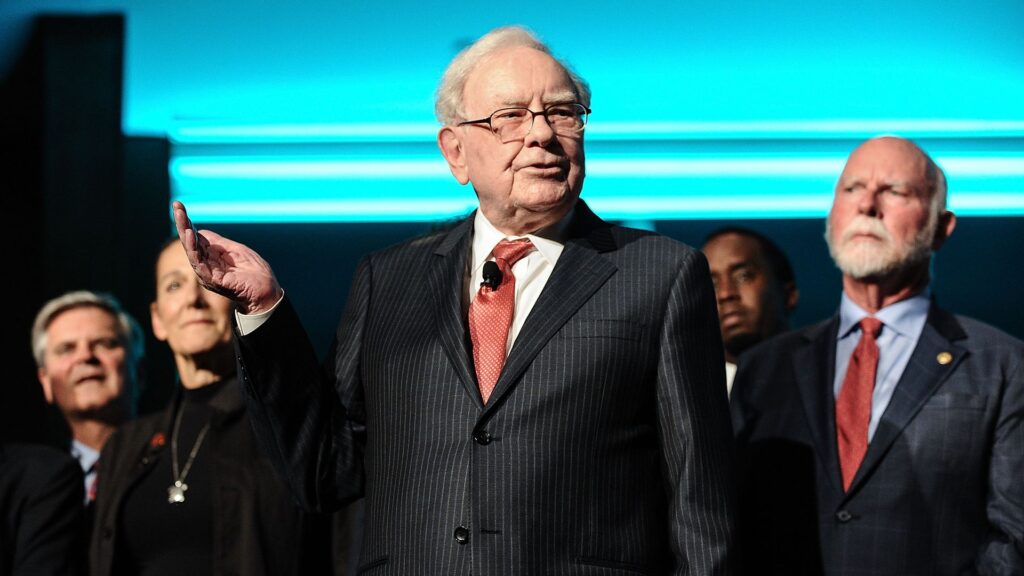6 Lessons From Warren Buffett’s Berkshire Hathaway 2020 Annual Letter

Berkshire Hathaway’s Warren Buffett is one of the most influential investors. He is one of the very few “Key Opinion Leaders” that we look up to in the world of investing.
Every year, retail investors would always anticipate his Annual Letter and Annual General Meeting.
So here are six lessons from Warren Buffett’s 2020 Annual Letter to Berkshire Hathaway shareholders
1. Operating Earnings are what count most, even during periods when they are not the largest item
Berkshire Hathaway is an American multinational conglomerate holding company headquartered in Omaha, Nebraska, United States. But its core operations ties back to its insurance business. This is largely due to its holdings in National Indemnity Company and the Government Employees Insurance Company (GEICO).
Its core insurance business fell 9% due to a tough year. But the other components of Berkshire Hathaway’s gains and losses include realized and unrealized capital gains from its stock holdings and also any potential write down losses. Due to the wild market fluctuations last year, Berkshire Hathaway’s GAAP profits/losses have been highly volatile due to the mark to market gains and losses for every quarterly result (10-Q).
Nevertheless, it is important to scrutinize a company’s operating earnings more than the net profit. Net profit takes into account one-off expenses, gains or losses. Hence, this might distort the true profitability of a company’s main business.
2. Warren Buffett Makes Mistakes, And It Took Him 4 Years To Realize One of Them
One of the mistakes that Warren Buffett highlighted is his purchase of Precision Castparts (“PCC”), back in the year 2016.
In his letter, he stated that, on his own misled judgement, he was too optimistic about PCC’s normalized profit potential. PCC got affected hard by the pandemic, as the aerospace industry contributed importantly as its source of customers.
In Warren Buffett’s own words, PCC is still a fine company with passionate management. The mistake he admits to was the average future earnings calculations. Hence, this affected his valuations of a proper price to pay for the business.
3. Investing illusions can continue for a surprisingly long time
One portion of Warren Buffett’s letter speaks about his distaste for conglomerates buying mediocre businesses for the sake of buying.
Even though Berkshire Hathaway is a conglomerate as well, but according to Buffett, Berkshire Hathaway does not buy for the sake of buying. This ties back to some of the current investing events that unfold in front of our eyes.
Just because something has not yet popped, it does not mean that it is not a bubble. And just because prices are going up without a reason, does not justify as a bullish thesis.
4. Berkshire’s $138 billion of insurance “float” is likely to remain near its present level for many years
Warren Buffett still views Berkshire’s insurance business as the most valuable gems among the 4 that it has. The property/casualty insurance operation has been the core bread and butter of Berkshire for 53 years. It operates with far more capital than is deployed by any of its competitors worldwide.
And with that amount on hand, plus the financial strength and cash-generating capability, this allows Berkshire to safely follow an equity-heavy investment strategy. The remaining 3 gems of Berkshire Hathaway? A 100% stake in BSNF, 5.4% stake in Apple and lastly, a 91% ownership of Berkshire Hathaway Energy (“BHE”).
He also reiterates his dislike for bonds, quoting that it is getting more and more unfavourable for fixed income investors.
5. Ownership of stocks is very much a “positive-sum” game.
Contradictorily to what most of us think about stocks as a “Zero-sum” game, Warren Buffett thinks of it as a “Positive-Sum” game.
A zero-sum game is where there is no creation of value i.e. one value flows from one party to another. One winner and one loser. The loser loses the same amount as the winner takes home.
A positive-sum game, on the other hand, refers to situations in which the total of gains and losses is greater than zero. In his own words, “a patient and level-headed monkey, who constructs a portfolio by throwing 50 darts at a board listing all of the S&P 500, will – over time – enjoy dividends and capital gains, just as long as it never gets tempted to make changes in its original “selections.”
There are too many instances people go in and out of the market, affected by a myriad of reasons. Not only this increases the expenses of investing, but it also reduces the available capital available for investments.
The only 2 requirements, after holding onto a productive asset, is the passage of time and inner calm.
6. Never bet against America
Warren Buffett repeated a key catchphrase in his last Berkshire Annual General Meeting. Even though going through a short term period full with unpredictablity, Warren Buffett reiterates his belief in the growth and prospect of America.
I agree with his opinions, but I always thought of it with an ending sentence to round things up.
Never bet against America, but do not dismiss China as well.
MyKayaPlus Verdict
Some may argue that Berkshire and Warren Buffett have been underperforming the S&P500 for the past 2 consecutive years. Some even think that his time has passed.
It may be true, that what Warren Buffett sees as a good business might change from time to time. It might be true, that tech and fast-growing prospective tech remains in his “too hard to understand” box.
But his principles and tenets of investing should play a huge role in how we see, pick, and manage our investments.
It is not what he buys nor his recent misperformance that matters. But rather, being a man with unwavering investing principles and the courage to admit mistakes, that truly sets him apart from the many iconic individuals in the investing world.





